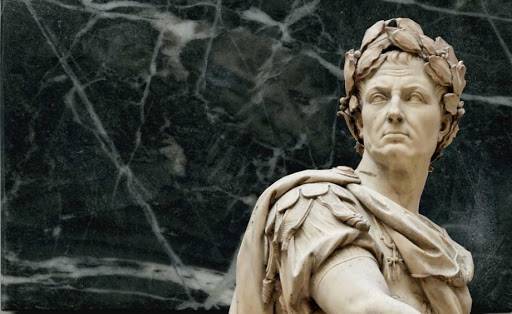
Julius Caesar is undoubtedly one of the most renowned and influential figures in history. Born in 100 BCE in Rome, he lived during a time of great political and social upheaval, which he himself played a significant role in shaping. Caesar is remembered for his military conquests, political achievements, and controversial personal life, which have made him a figure of both admiration and controversy.
Early Life and Rise to Power
Julius Caesar was born into a wealthy and prominent family in Rome. His father was a praetor and his mother was from an equally distinguished family. Despite his privileged upbringing, Caesar was not content to simply live off his family’s reputation. He pursued a career in politics and military service, and quickly made a name for himself as a skilled orator and military strategist.
In 63 BCE, Caesar was elected pontifex maximus, the highest religious office in Rome. This position gave him great influence in the city, and helped him to establish himself as a powerful political figure. He also served as quaestor in Hispania, where he demonstrated his military prowess by crushing a rebellion and capturing the city of Cordoba.
Caesar’s military successes and political ambitions earned him many enemies, however, and he was forced to flee Rome when the ruling dictator Sulla declared him an enemy of the state. Caesar spent the next several years in exile, but he continued to build his reputation and support among the people of Rome.
Triumphs and Tragedies
Caesar’s fortunes changed when he formed an alliance with Pompey and Crassus, two other powerful political figures in Rome. Together, they formed the First Triumvirate, a political alliance that allowed them to consolidate power and influence in Rome. With the support of Pompey and Crassus, Caesar was able to secure the governorship of Gaul, where he led a series of military campaigns that expanded Rome’s territory and secured his reputation as one of the greatest military commanders of all time.
Caesar’s success in Gaul, however, did not go unnoticed by his political rivals in Rome. In 49 BCE, the Senate ordered Caesar to disband his army and return to Rome as a private citizen. Caesar refused, and instead led his army across the Rubicon River, a move that effectively signaled the start of a civil war between Caesar and his political opponents.
Despite being outnumbered and outgunned, Caesar’s military genius allowed him to defeat his opponents and establish himself as the undisputed ruler of Rome. He was appointed dictator for life, a position that gave him near-absolute power over Rome and its territories.
Caesar’s rule was not without controversy, however. He made many enemies during his time in power, and his personal life was the subject of much gossip and scandal. He famously had an affair with Cleopatra, the queen of Egypt, and many historians believe that he fathered a child with her.
Legacy and Impact
Despite the controversies surrounding his life and reign, Julius Caesar left an indelible mark on history. He is remembered as one of the greatest military commanders of all time, and his conquests helped to expand Rome’s territory and influence throughout Europe and the Mediterranean. He is also remembered as a gifted orator and politician, who used his charisma and influence to shape the course of Roman history.
Caesar’s impact on Western civilization can still be felt today. His name has become synonymous with power, ambition, and political intrigue. His legacy has inspired countless works of art, literature, and film, and his influence can be seen in everything from the modern calendar to the architecture of Washington D.C.
In conclusion, Julius Caesar was a complex and controversial figure who left an indelible mark



















Add Comment